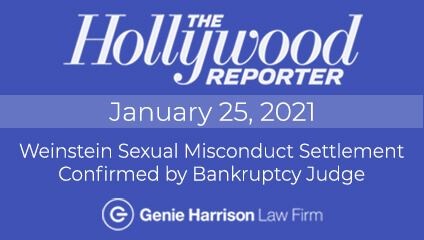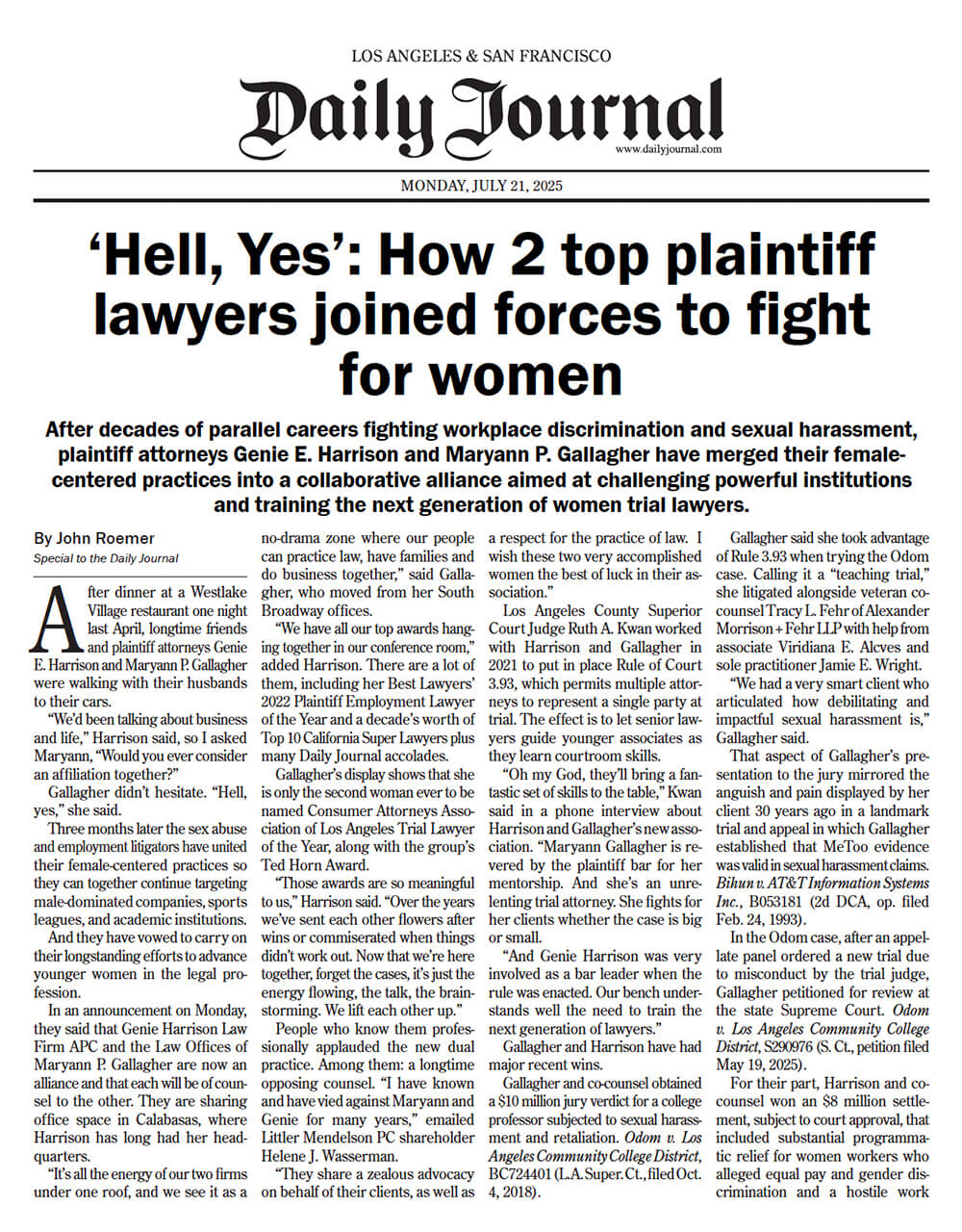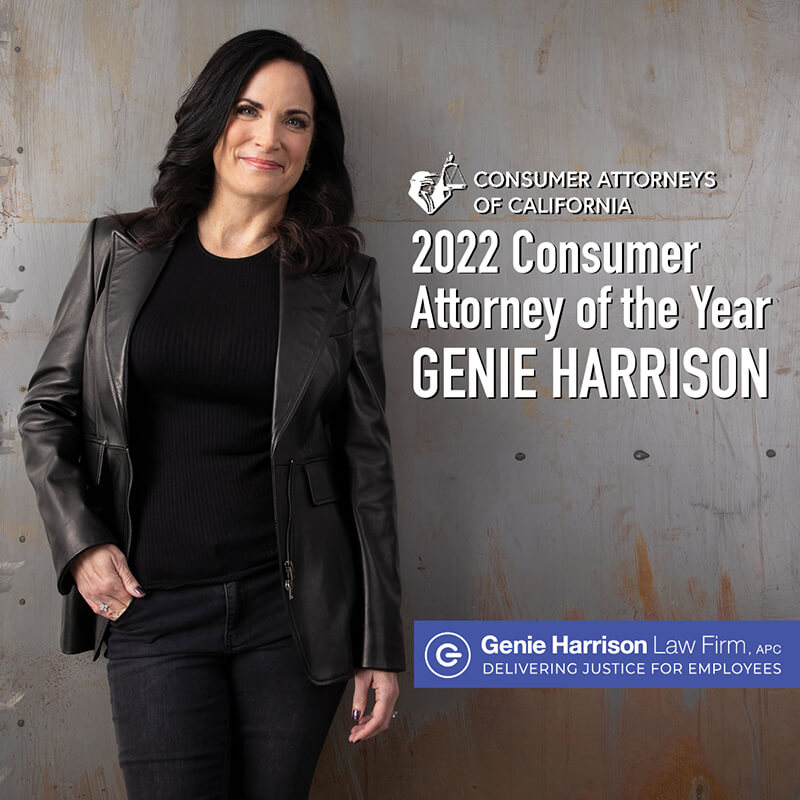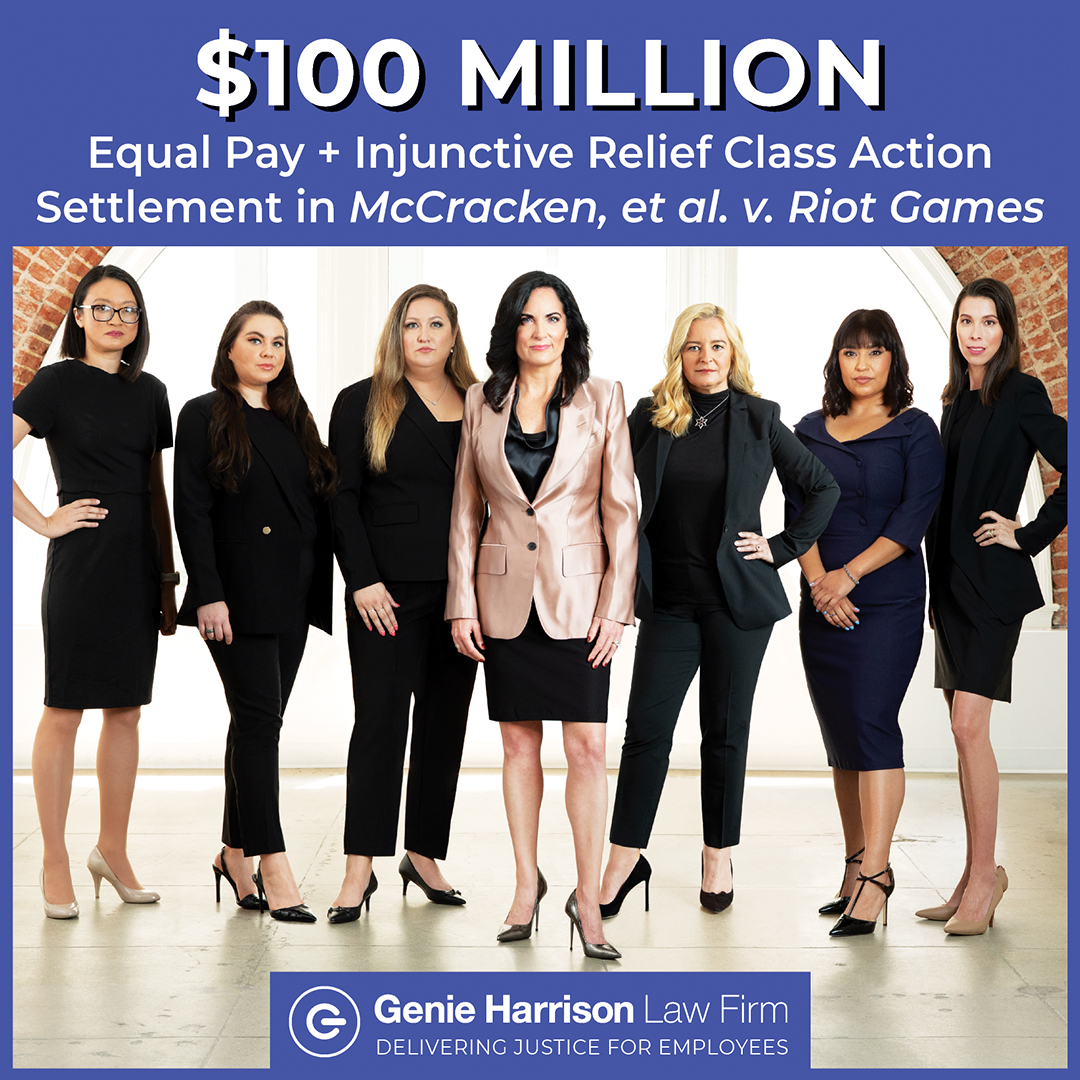Weinstein Sexual Misconduct Settlement Confirmed by Bankruptcy Judge
1/25/2021 — by Ashley Cullins for the Hollywood Reporter
(Read the story below, or here at HollywoodReporter.com)
“Eighty-three percent of the victims have expressed very loudly that they want closure through acceptance of this plan,” U.S. Bankruptcy Court Judge Mary Walrath said as she approved a settlement plan resolving most sexual harassment and assault claims against the producer.
The financial penalty for not releasing claims against Weinstein, and the mandatory release of claims against the others, drew sharp criticism from women who object to the deal. They also argued that women who have rape claims against Weinstein shouldn’t be evaluated in the same way as those who were only harassed.
During a Monday afternoon hearing, Genie Harrison, who represents five women with claims against Weinstein including his former assistant Sandeep Rehal, said her clients “have no doubt” it’s a fair deal. “This is not a close call to us,” she said. “My clients view this as a no-brainer.”
The attorney for TWC’s estate, Paul Zumbro, also emphasized that the majority of accusers don’t want to risk “messy, uncertain, public, painful litigation.” He argued that the settlement provides not only a fair financial recovery but also closure, adding, “It would be neither fair nor equitable to allow a small minority to derail the plan.”
U.S. Bankruptcy Judge Mary F. Walrath agreed.
“I will not get into an analysis of whether one victim’s claim has more validity or more value than another’s,” she said. “Every victim of Harvey Weinstein was victimized and deserves to have a say into the plan confirmation. If they choose not to release Mr. Weinstein, they have the right to have a jury trial. … Eighty-three percent of the victims have expressed very loudly that they want closure through acceptance of this plan.”
Reaction to the decision has been, understandably, varied among the attorneys for the women involved.
Douglas Wigdor and Kevin Mintzer, who represent Wedil David, Dominique Huett, Rowena Chiu, Zelda Perkins, Kaja Sokola and Tarale Wulff and have criticized the settlement terms, sent The Hollywood Reporter this statement in response to the decision: “We look forward to continuing to fight on behalf of survivors who seek to hold Harvey Weinstein and his corporate enablers accountable.”
Class counsel Beth Fegan said, “This bankruptcy plan guarantees that Harvey Weinstein’s survivors will have the opportunity to be heard in a safe and confidential process. Although there will never be enough compensation or redress to right these wrongs, we’re immeasurably honored to represent our brave and resilient clients who, in the face of adverse rulings, continued to advocate for a fund for all survivors.”
The attorney for the unsecured creditors, Debra Grassgreen, acknowledged the importance of finding a balance among those who wanted to settle and those who want to keep fighting. “In determining that the settlement was fair, it is critical to consider that the Plan balances the interest of the objectors by giving them their day in Court,” she said, in part. “It also takes into account the wishes of the rest of the women who voted — the ones who just want to move on with their lives and the last thing they want is to have to go through years of public litigation and risk getting nothing at the end.”
In addition to financial recovery, including for women whose claims may be outside the statute of limitations, New York Attorney General Letitia James in a statement lauded the non-monetary benefits of the deal. “The settlement also releases all women from any nondisclosure agreements they may have signed related to Weinstein’s misconduct, a critical measure to ensure that survivors can publicly and freely share their stories,” she said. “From day one, my office has always prioritized the right for survivors to have the opportunity to seek justice on their own terms, and that’s exactly what they’ve done. I want to again thank the brave women who came forward to share their stories with my office and with the world.”
Weinstein’s lawyer Imran H. Ansari of Aidala, Bertuna & Kamins also on Monday sent THR a statement. “While there are those who continue to rail against the settlement, that the court found acceptable today, the practical reality is that outside the settlement the plaintiffs face an uncertain financial recovery, with The Weinstein Company bankrupt, and Mr. Weinstein, who denies the claims against him, with a current and future financial state that is far from healthy,” he said. “Those yelling loudly seem to ignore, for whatever reason, that many parties have wanted this settlement to succeed, importantly, it is not just the Weinstein defendants, but the plaintiffs themselves, who likely recognize that it is the only route to a realistic recovery.”







